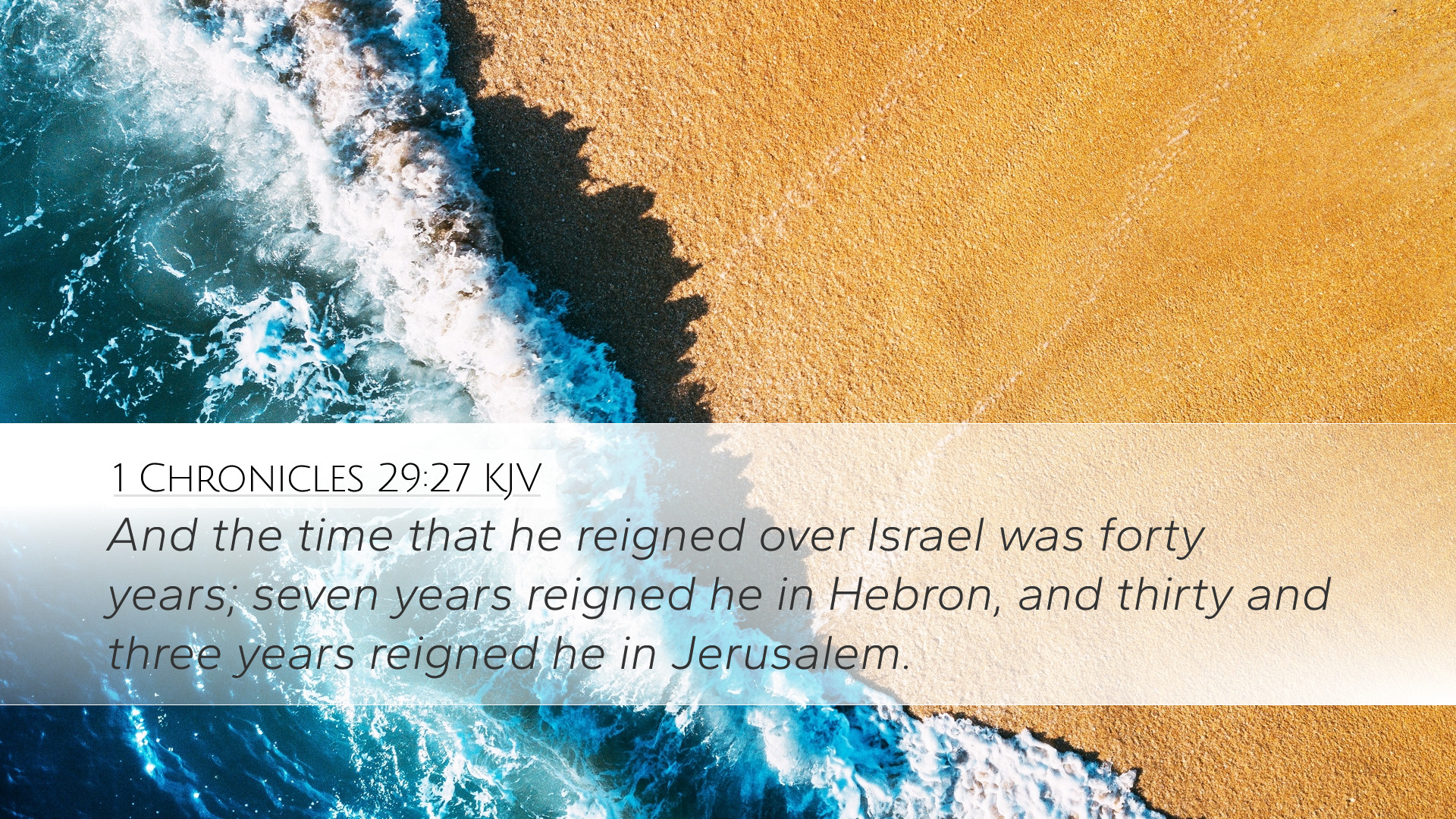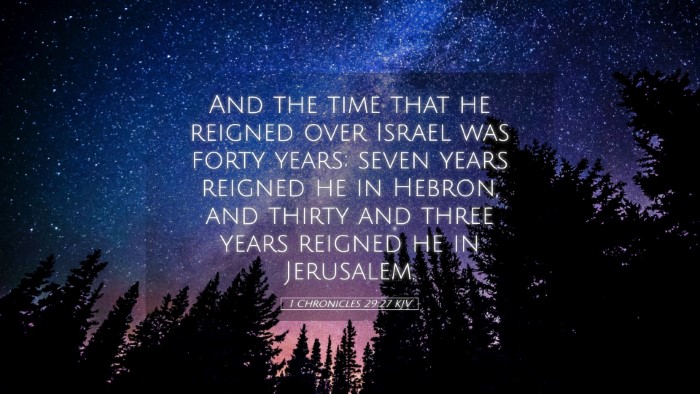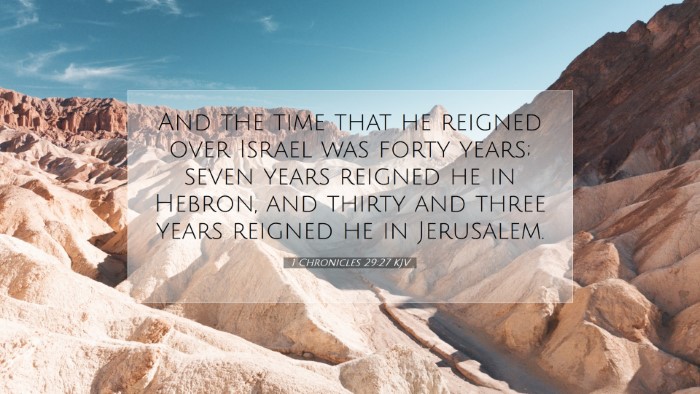Commentary on 1 Chronicles 29:27
1 Chronicles 29:27 states:
"And the time that he reigned over Israel was forty years; seven years reigned he in Hebron, and thirty and three years reigned he in Jerusalem."
Contextual Overview
The Chronicler provides a historical account of King David's reign, emphasizing not only his accomplishments but also the divine favor he received during his rule. This verse serves as a transition, marking the end of David's reign and setting the stage for Solomon's ascension to the throne.
Insights from Public Domain Commentaries
Matthew Henry’s Commentary
Historical Context: Matthew Henry highlights that the reign of David was characterized by both military victories and spiritual leadership. The duration mentioned — forty years in total — is significant as it shows the established duration of a godly king's reign.
Significance of Locations: The distinction between Hebron and Jerusalem is also notable. David’s rule began in Hebron, where he was recognized as king by Judah, while Jerusalem represents the culmination of his reign — a unified Israel with a central place of worship, the Temple, that would be built by Solomon.
Albert Barnes’ Notes on the Bible
Chronology of Reign: Albert Barnes provides a chronological breakdown of David's reign, emphasizing the partition of his rule into two significant segments: the initial seven years in Hebron as king of Judah and the subsequent thirty-three years in Jerusalem as the king over all Israel.
Divine Ordering: Barnes notes that the length of David's reign reflects God’s sovereignty. Throughout his reign, God's providence is evident, from his selection as king to the successful establishment of his kingdom. This reiterates the theme of divine appointment as essential in understanding leadership within Biblical history.
Adam Clarke’s Commentary
Theological Implications: Adam Clarke draws attention to the intertwining of God’s promises to David with the actualization of his reign. His lengthy rule is seen as a fulfillment of God’s covenant with David, which underscores the faithfulness of God to His people.
Reflection on a Godly Legacy: Clarke emphasizes that David’s reign, despite its challenges, was marked by a pursuit of God’s heart (Acts 13:22). David’s leadership sets a precursor for Solomon, foreshadowing the necessity of a heart devoted to God for effective governance.
Lessons for Pastors and Theologians
- Legacy of Leadership: David’s reign serves as a model of effective leadership rooted in faith, prayer, and seeking divine guidance.
- Divine Sovereignty: Understanding that all leadership is under God’s authority can provide peace in tumultuous times while fostering a reliance on divine wisdom.
- The Importance of Worship: David establishes Jerusalem as a center for worship. Any leader must prioritize spiritual health in their community, not just physical or political stability.
Application for Students and Scholars
The verse invites students of the Word to delve deeper into the historical context of the Old Testament. Scholars are encouraged to analyze how chronological markers affect the understanding of Biblical narratives.
- Studying Historical Context: Analyzing the political, cultural, and religious dynamics of David’s reign can yield insights into the nature of Israel’s monarchy.
- Exploring Theological Themes: Themes of covenant, kingship, and worship are prevalent in David’s story and provide foundational theological principles.
- Addressing Modern Governance: The truths gleaned from David’s leadership can inform contemporary discussions on leadership ethics and governance in faith communities.
Conclusion
1 Chronicles 29:27 serves as a potent reminder of the intertwining of divine providence, human leadership, and worship. Through the analysis of David’s reign, we glean valuable insights into the responsibilities and privileges of leadership in alignment with God's purpose. This verse invites a reflective response on how we view leadership in the church today, serving as a call to cultivate a heart that seeks after God.


